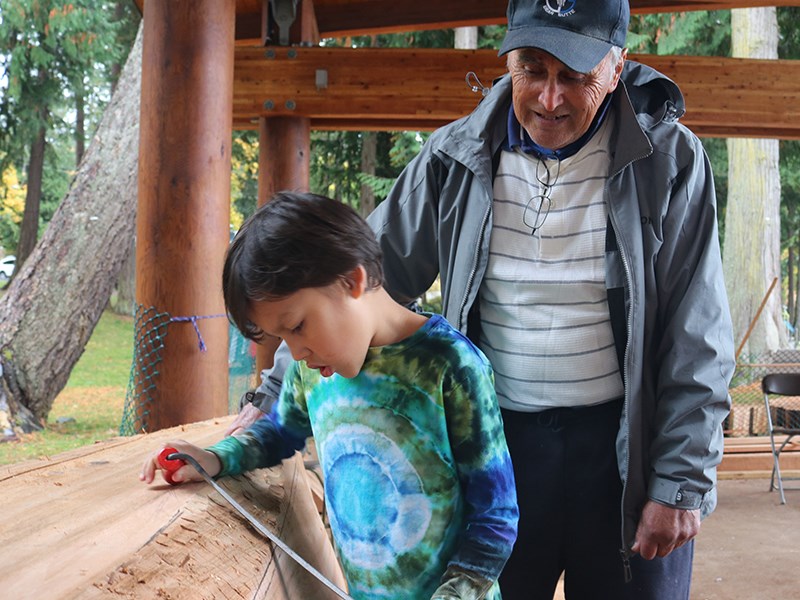More and more, Hɛhɛwšɩn (The Way Forward) Reconciliation Canoe Journey Project is influencing and informing Powell River’s understanding of what happened in residential schools and inspiring respect from non-indigenous people toward indigenous people in the region.
A joint initiative of Hɛhɛwšɩn, Powell River Public Library and Vancouver Island University Powell River (VIU) will explore the subject in a five-part Reconciliation Conversation Series every Tuesday evening. The series began November 7 and will conclude December 5.
The initiative is the work of local facilitator Davida Koren and other community members.
The first conversation was an introduction to the Truth and Reconciliation Commission (TRC).
Most people know the term TRC, but many are unaware of why it exists, according to Koren.
“By having this knowledge, we can better ensure that our actions will be well informed,” according to Koren.
The remaining four dialogues will have representation from people in some of the areas that were outlined in the 94 calls to action contained in the TRC final report, according to Julie Froekjaer-Jensen, VIU's program coordinator of first nations and school district programs and one of the organizers of the event.
“The purpose is to have community members who also hold positions in our city to speak to how they are implementing calls to actions or dealing with reconciliation through their work and in their personal lives,” said Froekjaer-Jensen.
Notable is that the list of speakers does not include any indigenous representation, according to Koren.
“The decision to mostly have speakers from the settler community is intentional,” said Koren. “The 94 calls to action call upon, specifically, the settler community to reconcile for the oppression and crimes committed against first nations communities. Therefore, it is the responsibility of the settler community to take the initiative to engage with and practice reconciliation, and the list of speakers reflect that ideology. “
One of those speakers is City of Powell River councillor and Powell River Métis Society president Russell Brewer. Community dialogue is important because some people are still unfamiliar with reconciliation and what it means, according to Brewer.
“I don't think enough people have taken the time to actually look into it,” said Brewer. “We need to reach out beyond the same group of people who discuss and come out to these things. I'm really hoping more people who might be more resistant to discussion will actually make a point of coming out.”
Powell River is among a number of smaller communities leading the way on reconciliation initiatives, according to Brewer.
Brewer said people need only go to Willingdon Beach where people are having spontaneous conversations.
“Someone stops by and happens to ask, 'What's going on here?'” he said. “It provides an opportunity to start those conversations. That's been the value of that project for sure.”
The Reconciliation Conversation Series continues on Tuesday, November 14.
For more information, including a list of speakers, go to prpl.ca/calendar.



